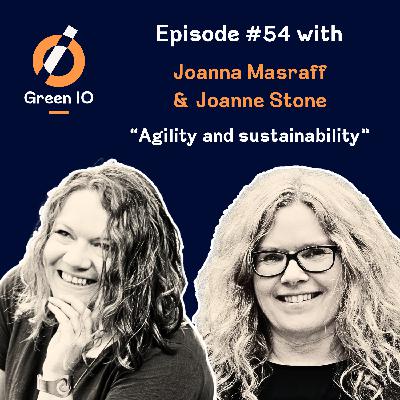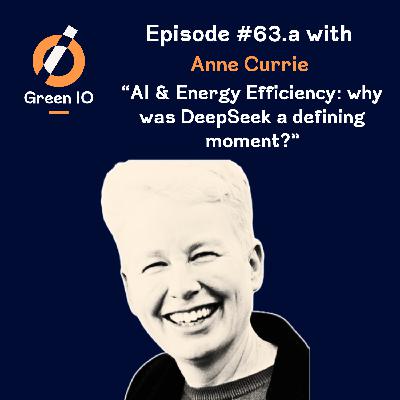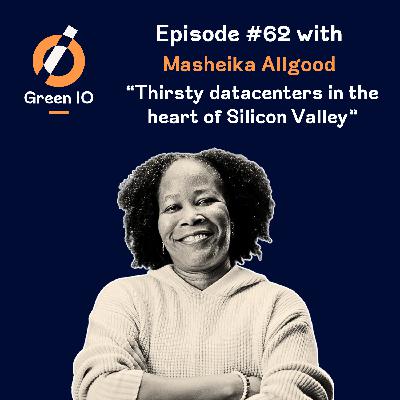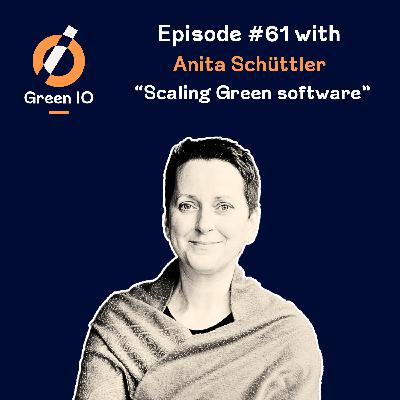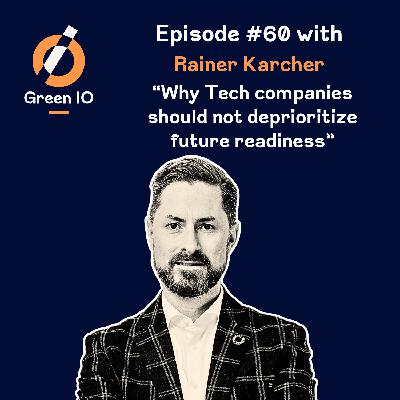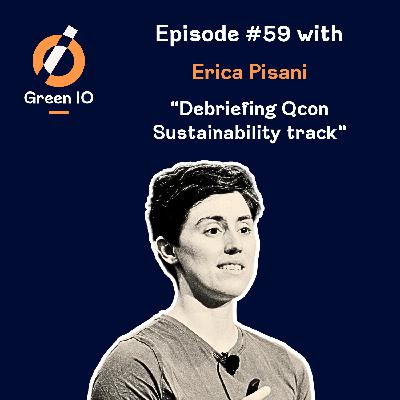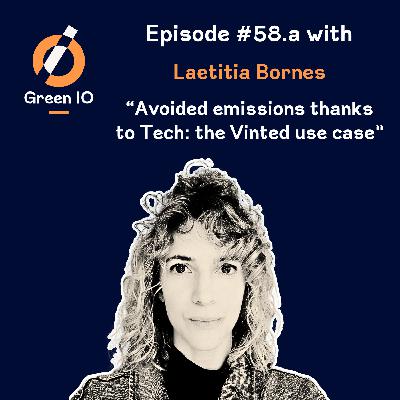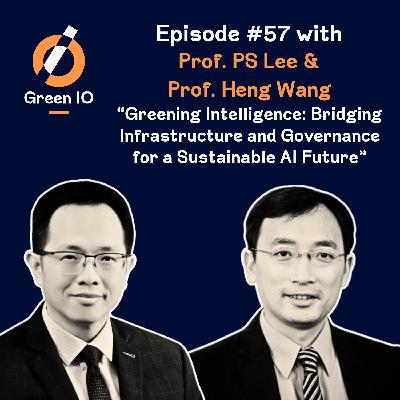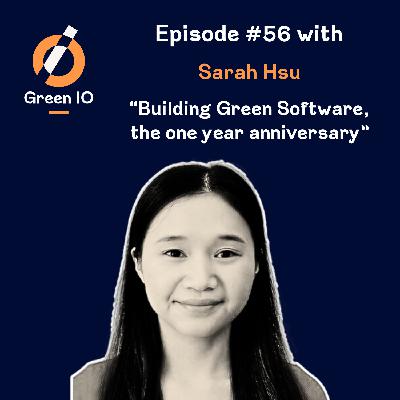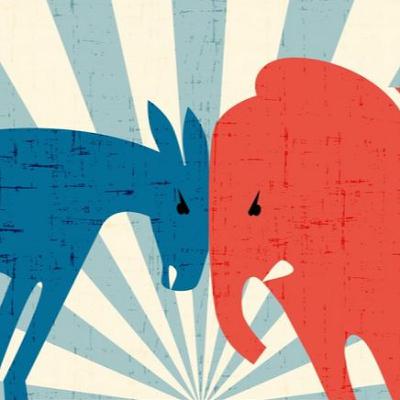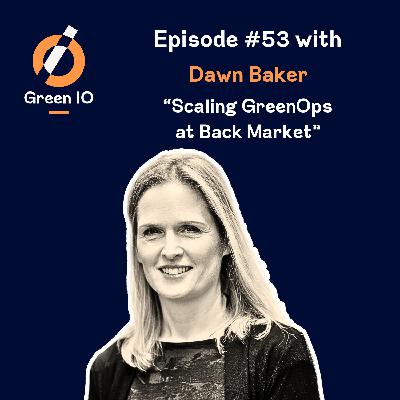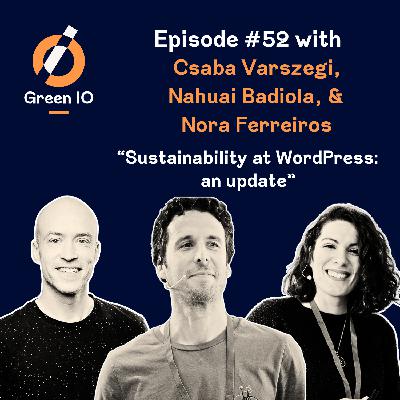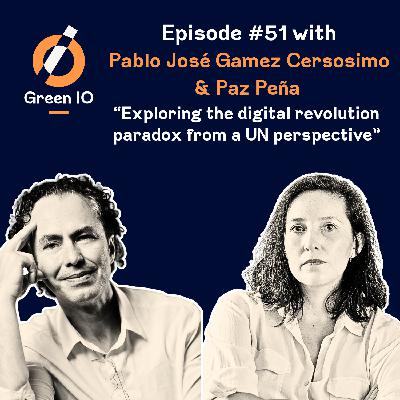# 54 Agility and Sustainability with Joanna Masraff and Joanne Stone
Update: 2025-03-13
Description
"We are 100% convinced that IT sustainability matters but we can’t add more non business requirements, we have agile teams."
This often heard sentence from product managers or CPOs, led to this dedicated episode on agility and sustainability where host Gaël Duez welcomes 2 seasoned agile coaches: Joanne Stone, the founder of Agilist 4 planet and the We Hope Magazine, and Joanna Masraff, co-organiser of the the Agilists4Sustainability meetup group, and the Agilists4Planet conference. In this interview, filled with positive energy, they covered:
🛠️ Sustainability twisted technics,
🏃 Urgency vs sustainable pace of transformation,
🎯 Objectives or Key Results when incorporating Sustainability into OKR framework,
🎬 How to kick start sustainability transformation,
🎬 How to kick start sustainability transformation,
🔥 The importance of passionate people and influencers,
🧙 Agile coaches as alchemists of change.
❤️ Subscribe, follow, like, ... stay connected the way you want to never miss an episode, twice a month, on Tuesday!
📧 Once a month, you get carefully curated news on digital sustainability packed with exclusive Green IO contents, subscribe to the Green IO newsletter here.
📣 Green IO Singapore is on April 16th and our next stop is in New York on May 15th. Every Green IO listener can get a free ticket using the voucher GREENIOVIP. A small gift for your huge support. 🎁
Learn more about our guest and connect:
- Joanna's LinkedIn
- Joanne’s LinkedIn
- Gaël's website
- Green IO website
📧 You can also send us an email at contact@greenio.com to share your feedback and suggest future guests or topics.
Joanna and Joanne’s sources and other references mentioned in this episode
- Agilist4Planet
- Agile Alliance sustainability initiative and Agile Sustainability manifesto
- We hope magazine
- green-po.org
- piratejo.co.uk
- Sustainability incubator project (SIPS)
- Green Software Foundation
Transcript
Joanna Masraff (00:01 )
I think this is where sustainable thinking actually comes in we're very used to thinking very specifically about the problem, about the solution that we're trying to do, but actually, we need to take that step backward and think wider, more holistically about both the problem and the solution space, maybe slower thinking is needed rather than all this now, now, now, right?
Gaël Duez (00:24 )
Hello everyone, welcome to Green IO, the podcast for responsible technologists building a greener digital world, one byte at a time. Every two Tuesdays, our guests from across the globe share insights, tools, and alternative approaches, enabling people within the tech sector and beyond to boost digital sustainability.
We are 100% convinced that IT sustainability matters, but we can't add more non-business requirements, and have agile teams. How many times did I hear this from product managers, CPOs or tech leads, not really knowing how to move from awareness to action? So it has been a while since I wanted to have a dedicated episode on agility and sustainability. And when Marjolaine Pillon pointed me into the direction of Agilist for Planets, I gladly connected with Johan and then Johanna about their work which was perfectly aligned with those questions. Joanne Stone is the founder of Agilist for Planet and founder also of the We Hope magazine. She has more than 30 years of experience in IT and was an early adopter of agile practices. She lives in Brooklyn, Ontario, Canada. And Joanna Masraff is one of her very early adopters.
Jo's journey in the agile world is marked by her role in co-organizing the Agilist for Sustainability meetup group and the Agilist for Planet conference. to be honest, sustainability has been part of a professional journey almost from the beginning with other topics such as inclusivity and equity. And she's also a co-founder of Green PO in the UK. I have also to tell you that I'm recovering from a pretty bad cold, so my voice is a disaster. But the great news about this episode is I'm not going to be the one talking as usual, so my guests will do. And anyway, I'm delighted to have them on the show. Welcome, Joanne. Welcome, Joanna.
Joanne Stone (02:33 )
Thank you. Glad to be here.
Joanna Masraff (02:34 )
Thank you very much for having us.
Gaël Duez (02:37 )
Glad that we've eventually managed to have this recording.
Joanne Stone (02:40 )
Yes.
Gaël Duez (02:43 )
So maybe starting with the basics, you are both part of the Agilist for Sustainability group. is this group about and what is this NGO Agilist for Planet about?
Joanne Stone (02:55 )
Go, go,
Joanna Masraff (02:56 )
So Sustainability came about actually due to the XP 2023 conference because they had, was the first agile conference that we were aware of that had a sustainability track. So suddenly the group of us who were already working on agile sustainability got together and said, right, we're speaking at this conference. Let's gather ourselves together and let's actually create a group, a community because we have more, we know of a lot of people who are trying to do this work. So why not create a group to share the learnings that we're going through, the things that we're finding out, the things that we're trying, the experiments that are working, that aren't working. And so Agilent for Sustainability group was born. But before that, we actually had Agility Impact, which Joe Stone started. So do you want to tell us a little bit about that?
Joanne Stone (03:52 )
I guess I'll start off with Lisa Atkins has been very much a big supporter in terms of sustainability and Agilist and sustainability. if you're not familiar with her, she's done a lot of really great work in Agile coaching teams. She knew that basically from an agility perspective that us, Agiles, could do more She felt that we can work in certain disaster areas All over the world and at that point time when I was talking to her about it. This is when the Australian fires were actually happening and I got really curious as to how Agilist can actually be part some of these climate-affected changes and like how can we actually be part of something like that? And so I started basically interviewing tons of people all over the world. And Lisa kept on kind of like carrying this torch about how could we, how can we actually bring Agility, Agile Coaches in Sustainability. What she did then is she had been, I think she'd been tapping into a lot of people, a lot of stories all over the world. And she started a keynote panel back in 2022 in Nashville. And that got a group of people together and Yuda Eckstein who's been doing this work for a lot longer than a bunch of us have. She was there and we just kind of like started to get introduced to others who were doing that. And then the, so basically what we wanted to do and Joe was actually starting to talk about as well is bring this awareness of the work that great people are doing all over the world. So we met at the XP conference, and we just kind of like kept collecting their incredible, incredible stories of what they've done by using agility and with sustainability. So whether that's economic or environmental, we would say. And it's incredible the amount of people that are actually doing some of this work right now.
Gaël Duez (05:54 )
And that's an interesting question because you mentioned some examples coming from using agility with a Tech for a good angle. And we tend here to focus quite a lot on green IT, which means making sure that IT teams and product teams in do take into consideration in the way that produce the IT services, produce the digital products.
some sustainability principles. how do you see the connection between agile and sustainability? And maybe it goes both ways. So could you elaborate a bit on it?
Joanna Masraff (06:30 )
the way that I'm coining it now, which I think really works and everybody, as soon as I say it, they're like light bulb, right? Is that Agile has been bringing social sustainability to the workplace since it started. So if you think about Agile's true mindset underneath it all, which is what true Agilists talk about, if you know what mean, it's really about bringing collaboration, communication, and the people to allow divergent thoughts and divergence in people to be included within the solution, to allow everybody their own space to be who they are withi
Comments
In Channel

